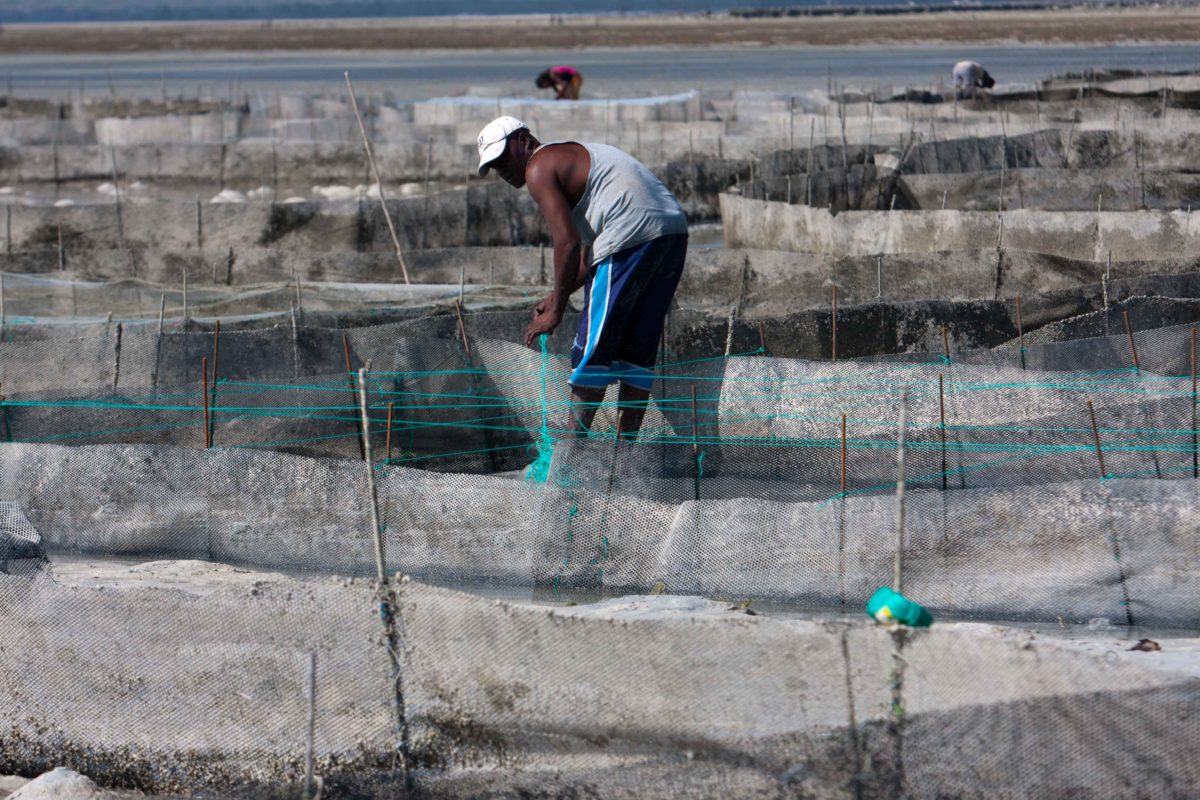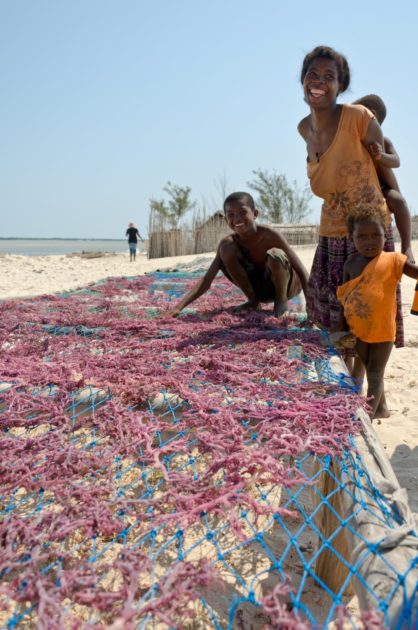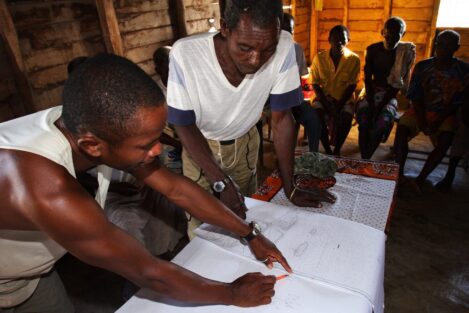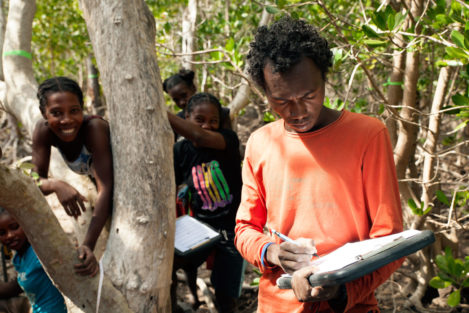In this week’s blog we pass the mic to a global expert on marine conservation, Professor Dan Laffoley. At IUCN he is Principal Advisor, Marine Science and Conservation for the Global Marine and Polar Programme, and has the global honorary role as Marine Vice Chair for the World Commission on Protected Areas (WCPA). We were fortunate enough to have him visit our programmes in Madagascar earlier this year, and to hear his thoughts on how Blue Ventures’ work is connected with global conservation issues.
Through my work I seek knowledge, and provide innovation and leadership for consolidating action for the ocean and devising new ways for delivering marine conservation, protection and management that levers greater action and attention for our seas.
I had heard a great deal in recent years about Blue Ventures’ work, so I was naturally curious to find out more. The timing of my trip earlier this year was ideal, as there are great synergies between global issues and the work Blue Ventures does that could be explored.
Globally we have a keen interest in protected areas and “other areas-based conservation measures” under the Convention of Biological Diversity’s (CBD) Aichi Target 11. The work Blue Ventures does to support the establishment of Locally Managed Marine Areas (LMMAs) is exemplary of the holistic approach to “areas-based conservation” that the CBD endorses, in fact at IUCN we are in the process of providing global guidance for countries on such matters at the CBD’s request.
We are also looking at sustainable aquaculture, and since the earliest days we have led on Blue Carbon, bringing that idea to the attention of the world, so Blue Ventures’ Aquaculture and Blue Forests programmes were both sources of great interest.
Having now witnessed the conservation programmes being implemented in coastal areas in Madagascar, I believe that global conservation lessons can be learnt, and that these are important to share.
Lesson 1
“Marine Conservation is not so much about biodiversity or ecosystems as it is about people”
I believe that community leadership plays a very considerable role in the broader marine conservation movement. I often explain to people that marine conservation is not so much about biodiversity or ecosystems as it is about people. Whether in remotest Madagascar or in bustling Miami the same principle applies, which is without community support conservation action so often finds itself adrift in the water. So wherever the location, whatever the differing economic background, there is a need to bring in communities and leaders as early as possible not just to gain their support, but to better understand local issues, problems, opportunities and conditions.
Just because you are in a poor country, that does not mean that conservation action isn’t as meaningful as that delivered by richer nations. Indeed, the no-take areas in the middle of community-conserved areas are probably as effective if not more so than those in developed countries. It is probable that on a relatively short piece of coast Madagascar has more fully protected areas than currently exist around England.
It will be valuable to feed Madagascar’s experience into the development of the CBD guidance on other effective “areas-based conservation measures”, and since my visit we have made that a practical reality.
Lesson 2
It is possible to create small-scale sustainable alternatives to fishing to support local communities.
“Perhaps the time has come to apply the ‘fair trade’ principles to these areas and not just some aspects of the fish market”
The examples of seaweed farming and sea cucumber ranching are interesting ones to follow, as Blue Ventures is connecting isolated coastal communities with lucrative international markets, enabling families to develop their own aquaculture businesses.
Whilst such creativity is indeed possible, it won’t be fully effective or financially viable until many more nations deal with the purchasing chain issues, where the wealth and true market value is not going to the farmers but to a relatively few rich middle-men.
Perhaps the time has come to apply the ‘fair trade’ principles to these areas and not just some aspects of the fish market.

Sea cucumber ranching in Tampolove, Madagascar | Photo: Garth Cripps
Lesson 3
“More support is needed on nations-terms to translate guidance into action”
Greater interaction by IUCN is needed at regional and national levels.
Whilst this continues to be a driving aim, especially in WCPA – Marine, the reality is that more support is needed on nations-terms to translate guidance into action, to advise on national measures and to help sustain or indeed create greater impetus for action.
Good discussions across the marine NGO community in Madagascar at the end of my visit showed the potential, and I hope this will be followed through.
If you want to find out more about Dan Laffoley, his website is here: http://danlaffoley.com/
He also recently wrote a fantastic blog for Virgin.com and The Huffington Post: Time to look after your best friend – the one you never knew you had!




